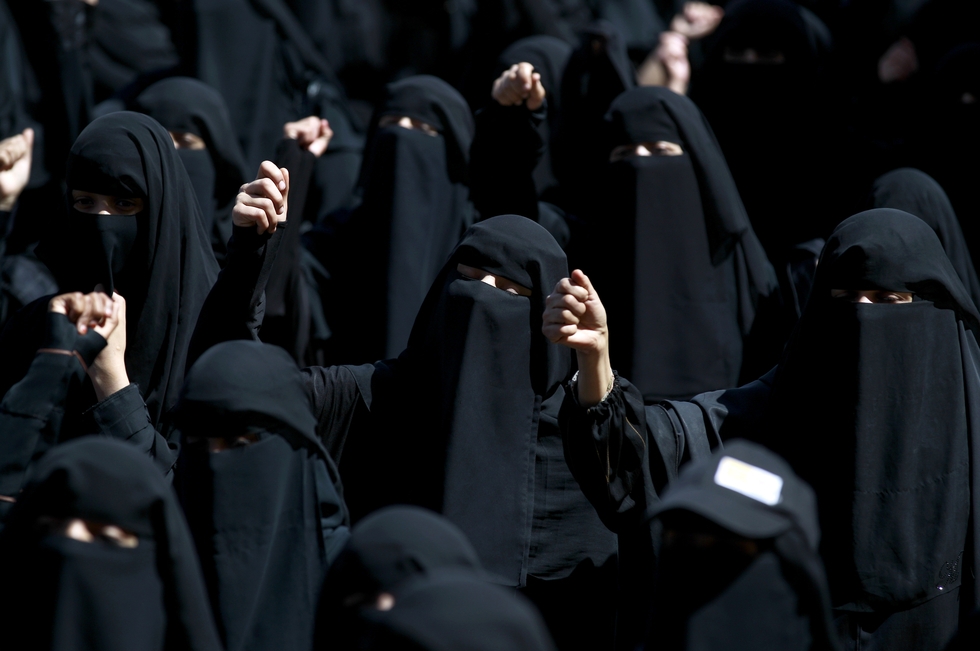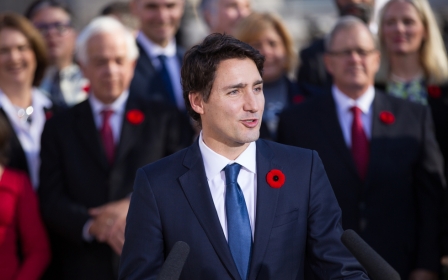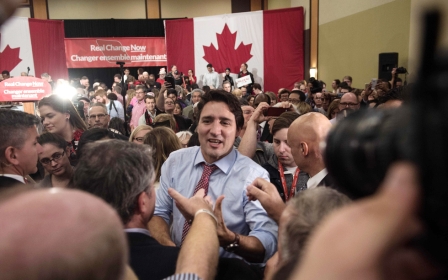Canada government ends legal fight to ban niqab
The new Canadian government has decided to end the previous administration's attempts to ban the niqab

Yemeni women dressed in the niqab, take part in a demonstration on 4 October, 2015 (AFP)
Published date: Lundi 16 novembre 2015 - 20:58
|
Last update: 9 années ago
Canada withdrew on Monday its appeal to the high court of a decision that struck down a popular ban on the niqab and swayed the outcome of recent legislative elections.
Attorney General Jody Wilson-Raybould said she has notified the Supreme Court that the government has "discontinued its application for leave in the case."
"Canada's diversity is among its greatest strengths, and today we have ensured that successful citizenship candidates continue to be included in the Canadian family. We are a strong and united country because of, not in spite of, our differences," she said in a joint statement with Immigration Minister John McCallum.
A lower court ruling in support of a Muslim woman's right to wear the veil, which covers all of her face except the eyes, had become a hot-button issue four weeks before last month's legislative elections.
The prohibition against newcomers wearing the veil during citizenship ceremonies had been introduced by the previous Tory administration in 2011. But it was quashed by a lower court in September.
The ruling marked a pivotal turn in the election campaign.
The Tories' anti-niqab position helped swing the party back in the lead for a brief moment while the leftist New Democrats fell from first to third place in public opinion polls after coming out in favor of a woman's right to wear whatever she wants.
The Liberals shared the New Democrats' view on the issue but managed to avoid the backlash, and ended up winning the election in a landslide.
The court battle at the center of the controversy was brought by Toronto-area resident Zunera Ishaq, who argued successfully that the ban violated her religious freedoms under Canada's rights charter.
Originally from Pakistan, Ishaq arrived in Canada in 2008 and passed her citizenship test in 2013. But she refused to participate in the oath-reciting ceremony because she did not want to do it with her face uncovered.
She was sworn in as a Canadian citizen 10 days before the October 19 election, in time to vote.
Middle East Eye propose une couverture et une analyse indépendantes et incomparables du Moyen-Orient, de l’Afrique du Nord et d’autres régions du monde. Pour en savoir plus sur la reprise de ce contenu et les frais qui s’appliquent, veuillez remplir ce formulaire [en anglais]. Pour en savoir plus sur MEE, cliquez ici [en anglais].




